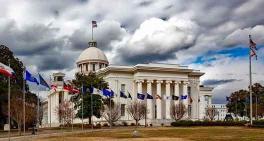Court: Compliance reached in education funding case
Featured Legal News
A long-running court case over the adequacy of education funding in Washington state has ended, with the state Supreme Court on Thursday lifting its jurisdiction over the case and dropping daily sanctions after the Legislature funneled billions more dollars into public schools.
The court's unanimous order came in response to lawmakers passing a supplemental budget earlier this year that the justices said was the final step needed to reach compliance with a 2012 state Supreme Court ruling that found that K-12 school funding was inadequate. Washington's Constitution states that it is the Legislature's "paramount duty" to fully fund the education system. The resolution of the landmark case in Washington state comes as other states like Arizona, Oklahoma and Kentucky are now responding to calls for more money to be allocated to education.
The state had been in contempt of court since 2014 for lack of progress on that ruling, and daily sanctions of $100,000 — allocated specifically for education spending— had been accruing since August 2015.
"Reversing decades of underfunding has been among the heaviest lifts we've faced in recent years and required difficult and complex decisions, but I'm incredibly proud and grateful for all those who came together on a bipartisan basis to get this job done," Washington Gov. Jay Inslee said in a written statement.
Over the past few years, lawmakers had put significantly more money toward education costs like student transportation and classroom supplies, but the biggest piece they needed to tackle to reach full compliance was figuring out how much the state must provide for teacher salaries. School districts had paid a big chunk of those salaries with local property-tax levies, something the court said had to be remedied.
In November, the court said a plan passed by the Legislature last year — which included a statewide property tax increase earmarked for education — satisfied its earlier ruling, but justices took issue with the fact that the teacher salary component of the plan wasn't fully funded until September 2019. This year, lawmakers expedited that timeframe to Sept. 1, 2018.
Democratic House Majority Leader Pat Sullivan said that the court's order was a relief, though he noted that legislative debates over education funding aren't over. Sullivan said there is more work to be done on areas like special education, as well as recruiting and retaining teachers.
Related listings
-
Kentucky high court: Death penalty IQ law unconstitutional
Featured Legal News 06/16/2018The Kentucky Supreme Court has ruled that the state's practice for determining if someone is intellectually disabled and not eligible to receive the death penalty is "unconstitutional."News outlets report that the court on Thursday deemed Kentucky's ...
-
Kansas court avoids ruling on execution for student's death
Featured Legal News 06/13/2018The Kansas Supreme Court has postponed a decision on whether the state can execute a man convicted of kidnapping, raping and strangling a 19-year-old college student.The high court on Friday upheld the capital murder conviction of Justin Eugene Thurb...
-
Supreme Court strikes down Minnesota's voter clothing law
Featured Legal News 06/11/2018The Supreme Court on Thursday struck down a Minnesota law that barred voters in the state from wearing a wide range of political hats, T-shirts and pins to the polls.Minnesota had defended its law as a reasonable restriction that keeps order at polli...

Processing Change for Certain Form I-730 Petitions
USCIS changed the processing location for certain Form I-730, Refugee/Asylee Relative Petition, filings. Previously the Service Center Operations Directorate processed these filings. Now, the International Adjudications Support Branch (IASB) in the Refugee, Asylum, and International Operations Directorate will process the petitions filed by individuals who were admitted to the United States as refugees. Petitioners and/or accredited representatives who file refugee-based Form I-730 petitions will receive further instructions when IASB receives their filings. Form I-730 petitions filed by persons granted asylum will not be affected by this change. The mailing instructions for Form I-730 remain the same. Petitioners should continue to follow the Where to File directions on the Form I-730 page. This policy update is consistent with the Department of Labor’s (DOL’s) Standard Occupational Classification system. DOL defines economists as people who conduct research, prepare reports, or formulate plans to address economic problems related to the production and distribution of goods and services or monetary and fiscal policy. Economists may collect and process economic and statistical data using sampling techniques and econometric methods.




